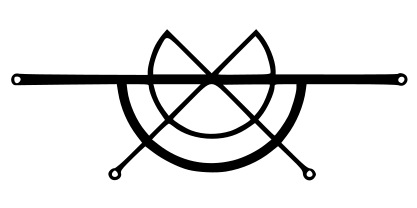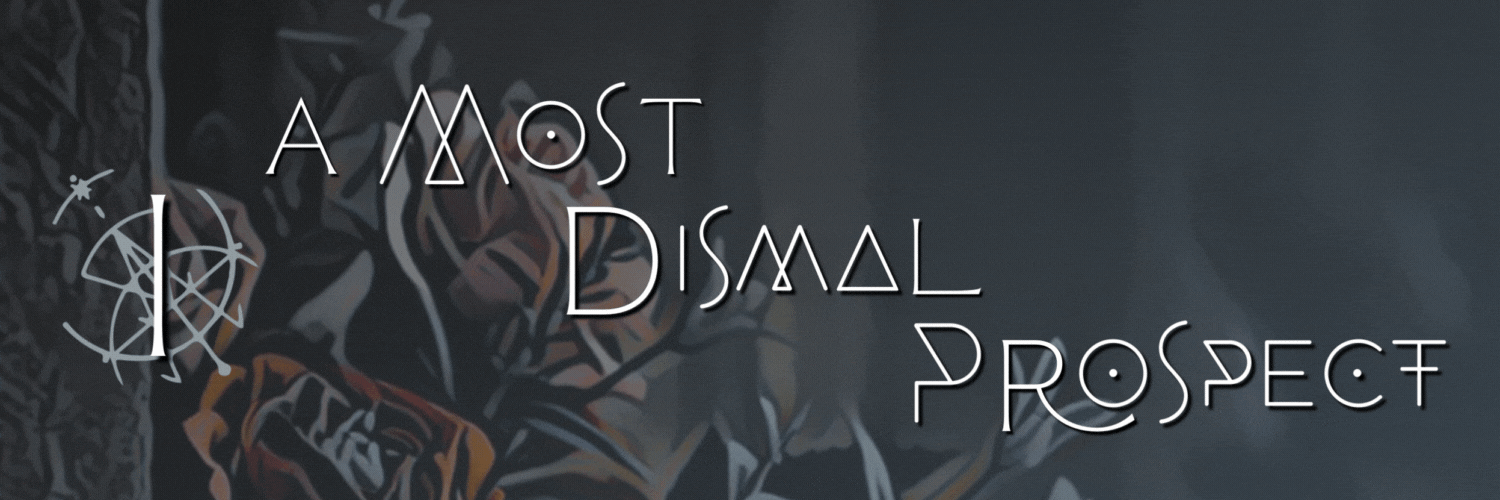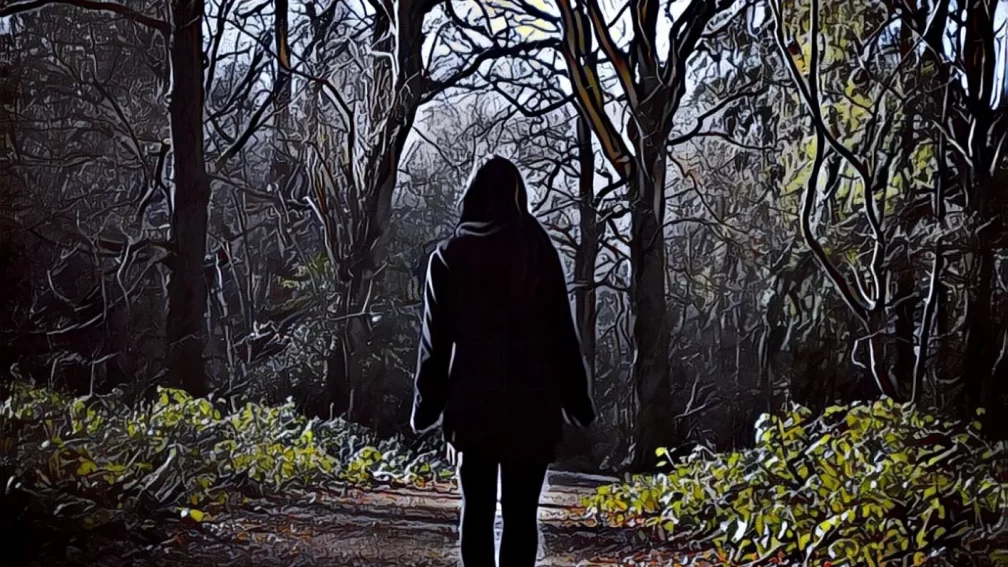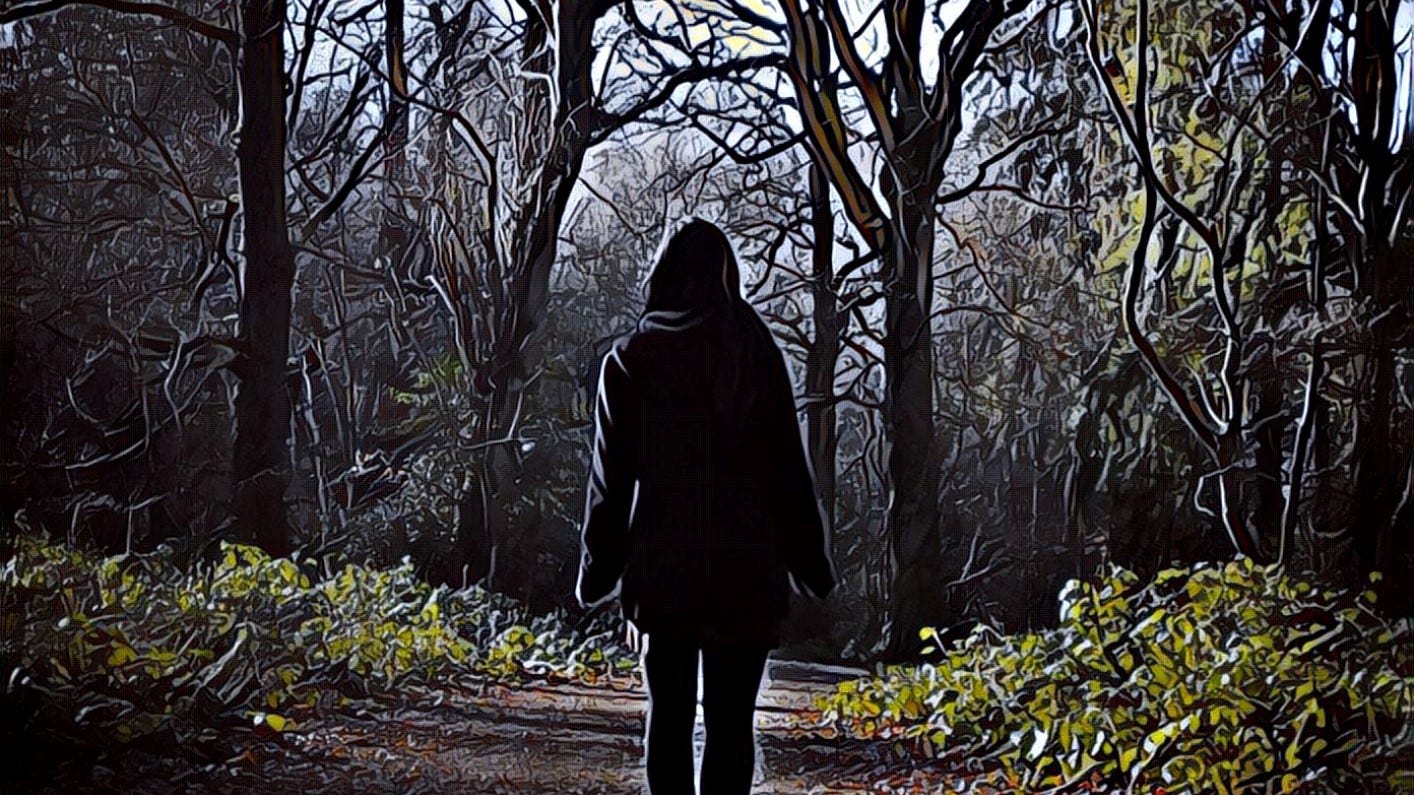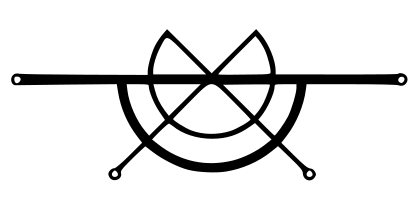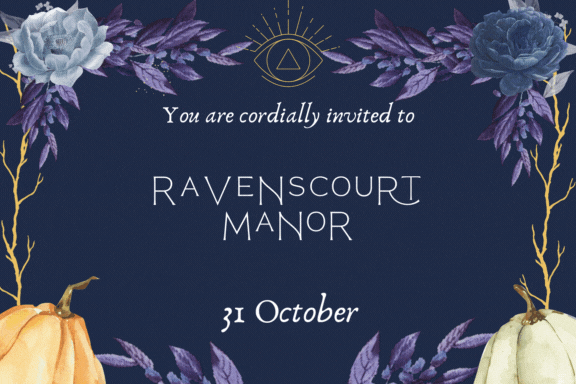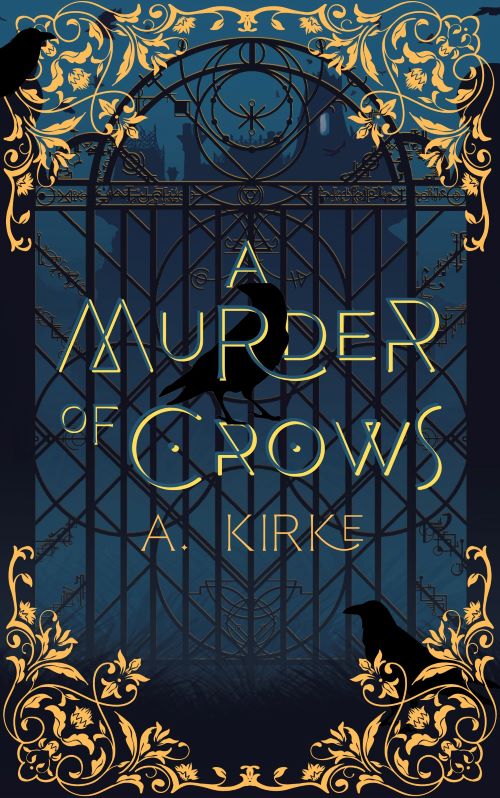
The worst part was not being allowed to scream.
If I’d had it my way, everyone from the hunch-backed pallbearers, to the long-faced priest, to the undertaker with his black hat and long coat would have gotten a scream in the face, just so they’d know exactly how I felt about the whole affair.
Unfortunately, the proper bearing for funerals is non-negotiable: you are to shed tears (but not bawl), be respectful (but not dour), and stand up straight and tall throughout the long-winded preaching (all without being too stiff). Considering that, screaming is not generally considered appropriate, even when you think it should be.
Even when it’s a better option than breaking things.
Even when it’s your Father who’s died.
The undertaker had brought him into the house the previous evening, all readied for the Resting. Now, while Mum and William dressed upstairs, I sneaked down to our black-curtained parlour to spend one last morning with my father.
The first thing I noticed were the Deathmarks. It was the first time I’d ever seen Deathmarks in person, but they weren’t difficult to recognize. Lines and circles covered his face and hands in a dizzying pattern of ash, drawn on his skin by the undertaker to make sure his spirit didn’t end up haunting our attic, to protect all of us from stray magic, and to keep Dad intact for the Resting.
The sight of them made my skin crawl. The Marks weren’t anything like magicians’ spells, but they still held power. More than anything else, the Marks were a certain sign that the mourning drapes, the coffin, the silence left behind in his absence—all of it was real. He was gone. And there was nothing any of us could do about it.
I didn’t even notice when William came downstairs—our creaky old steps never made so much as a single complaint for him: my brother was too small and sneaky. It was only when he stepped up next to me, lifting himself onto tiptoes to see into the casket that I caught him. With a sigh, he fell back onto his heels and said:
“It doesn’t look right, Abby.”
I gave him a look—the look, if you know what I mean. “Of course it doesn’t,” I said. “He’s dead.”
Turning back to Dad, lying there in the middle of our parlour though, I had to admit that William was right: despite the arrangements (and even ignoring the Deathmarks) there was something off about it—something that didn’t quite make sense. Dad’s hands lay folded across his chest: he looked more like a doll or some sort of waxwork than my father. Even sleeping, Dad was never so still.
Yet, somehow, we’d mistaken it for sleep at first. The morning he died had been traitorously bright and blue and beautiful. Waking late, I wondered why Dad wasn’t already up. He was usually up before the rest of us—examining plants in his study, or tending to the overgrown patch of yard out back that he insisted on calling the garden. But the house lay silent. Dad was nowhere to be found, and so at last, I knocked on his half-open door to find him pale and still. Sleeping—or so I thought.
It wasn’t until Mother came by with a kiss to wake him that we knew.
The doctor was called, and the coroner, and a pair of pale-faced lawyers came by to talk to Mother about “necessary considerations”—which I guess is what lawyers call all the paperwork they need to do when someone dies. All the while, I sat with William in our parlour, going over my Defences and helping him with his smoke bombs and watching the bustle of strangers pass through our house. And all the while, I wondered, how could any of this be real?
At the end of the day, after the coroner had satisfied himself with his poking and probing and Mother had talked to a priest about the funeral arrangements (she had needed to sell her favourite pearl earrings to pay for all of it), after the sun had set and the house had darkened, after even William had gone upstairs, I was left in our empty parlour to stare at the dying fire and wonder about a different question, the most obvious question, the one question that no one else seemed bothered to ask:
How did he die?
At least the Resting service gave Dad a chance to answer that question himself. At the Resting, Dad’s spirit would rise— “like light,” Mother had told us—and Dad would be able to talk to us just once more before passing on. It was small comfort. After that, Dad would truly be gone—wiped away with the black ash on his forehead.
But it would still be a couple hours before then, and right now, William was fidgeting next to me, rocking onto his toes to look into the coffin once more. And then—before I could think to stop him, he reached in with one hand—
I kicked him in the shin.
“Ow!”
“What do you think you’re doing?”
He glared at me sideways. “I was just removing his glasses!”
“Oh.”
He removed the wire-rimmed spectacles from where they’d been set on our father’s nose, and folded them up, tucking them into the pocket of Dad’s jacket instead. “There,” said William. “Now it doesn’t look so strange. He could be sleeping, if—”
“If we didn’t already know he was dead,” I finished for him.
There was a knock at the door, and William stepped back from the coffin, hands disappearing into his pockets as Mother appeared at the top of the stair. She was wearing a veil of black lace to hide her face, which, as far as I can tell, is either supposed to make you feel less ashamed of crying your eyes out, or make it easier for other people to ignore the fact that you’re crying your eyes out—not that Mother had let anyone catch her crying at all. Her red hair was pinned neatly under her hat, and as she caught sight of us at the casket, she tsked—though with the mourning veil, I couldn’t tell whether it was at William’s untucked shirt or my hair—which, unlike hers, was escaping its pins to stick up in all directions.
Mother descended the stair to open the door. The undertaker and his pallbearers trooped into the house, exchanging a few short words with Mother. In less than a minute, Dad was closed into his casket, and the pallbearers carried him out of the house to the waiting carriage.
The world outside was withering and grey. We followed the black horses through our tiny town, the November wind tugging at our skirts and trousers and coats and doing nothing to improve my hair. Before too long, we were standing at the gate to the cemetery, engraved Wardmarks looming over us.
Like my father’s ashen Deathmarks, the cemetery Wardmarks traced an unreadable pattern of intertwined lines and shapes along the stones of the cemetery wall, meant to keep people from trespassing and disturbing the dead. Their power prickled against my skin even before we entered. Anyone crossing the Graveward without a good reason was certain to be caught—quickly, if they were lucky. If not, a night trapped in a Graveward had been known to drive people mad. There was a price to pay for disturbing the dead.
In any case, I’d never had reason to step foot in the cemetery before. Yet, even with the undertaker driving Dad’s coffin under the gate ahead of us, I wasn’t taking any chances—I twisted my silver ring in my fingers, Dad’s words on the spiritual Defences echoing in my mind:
The First Defence is always with you, but this ring will help you remember it.
Immediately, warmth coiled through all my limbs, dulling the rainy air and the cold wind, as if I were feeling them through another layer of skin. If I did it right, the Defence would make my spirit a little dimmer, a little less obvious, blocking magicians from reading my mind and diverting any unwanted attention from people or spells… or Wards.
I needn’t have bothered. As we passed beneath the stone arch of the gate, the eerie prickling of the Graveward washed over me in a wave of goose bumps—like a twinge of magic. But it wasn’t magic of course, and within another moment, we were on the other side, the Ward’s power fading with a sigh. We weren’t trespassing, it had decided.
No, we were burying my father. It was yet another sign that this was all real.
The carriage pulled up next to a freshly dug grave. The priest was already waiting, and Mother ushered us to the other side, pressing bouquets of white flowers into our hands. The pallbearers pulled out the casket, the priest pulled out his Book, and the service began.
“Today,” wheezed the priest in a voice as old and cracked as his Book, “We mourn the passing of Lewis Crowe. He was a beloved husband and father, and his death is truly a loss…”
The flowers grew heavy in my hands. As far as I knew, the priest in front of us had never met father. How could he possibly know how much we’d lost?
“I am the resurrection and the life, saith the Lord. He that believeth in me, though he were dead, yet shall he live…”
He might as well have been speaking ancient Aegyptian for all I could understand. But I had to get through it for Dad’s Resting. That was all that mattered: the last chance I would ever have to speak to him, to say goodbye properly… if only the priest would get his sermon over with.
Finally he set aside his Book. “While the body rests in the earth, the spirit rests in heaven,” he said, pulling open the casket lid once more. I clutched the flowers. This was it. “Let the shackles of this world be unbound.” He poured holy water onto Dad’s forehead and hands. The ashen Marks melted into nothingness. For a moment, the world held its breath.
Nothing.
I waited for something, anything, but there was no sign of Dad’s spirit rising from his body, no prickle of magic or Marks, no light. Nothing but a choked silence, and the sickening clutch of disappointment in my chest.
I threw down the flowers and walked away.
The priest whispered harshly at the undertaker, and I knew, even without looking, that Mother’s eyes were following me as I stalked away. I didn’t care. I didn’t stop, didn’t look back—not until I’d reached the other side of the graveyard, hidden beyond one of the mausoleums.
But I wasn’t alone. A man stood at the gate with a cane at his side, wearing a black suit and a frown that seemed severe even by graveyard standards. As I slowed to a stop next to a granite headstone (Maeve Finche, beloved wife and mother, 1823-1862), the man nodded at me and tipped his hat. I could’ve sworn I’d never seen him before—he didn’t look like any of the people in town, and my parents had never been too keen on visitors or friends, so it was unlikely that he knew them. As much as I tried to place him, he didn’t fit anywhere in my memory, yet…
There was something about him—about the way he stood, the way he moved, the fact that he’d tipped his hat at me—that held a threat of recognition.
He slipped into the cemetery, stepping through the boundary of the Graveward without even the smallest flinch of discomfort. He had to lean heavily on his cane as he crossed the grounds, but he never once looked down: if he’d come to visit someone, he didn’t waste time looking for them among the graves. I marked his halting walk across the grounds, and just as he was about to turn the corner of the mausoleum, I made to follow him.
He shot a glare over his shoulder, and our eyes met, his severe frown as clear a warning as any. I froze. He shook his head, once—a small gesture, almost invisible—and the next moment, he’d disappeared amongst the stones.
I was left standing with Maeve Finche’s femurs somewhere below my feet, wondering if there was any point in trying to find out what was going on with Dad’s service.
Before I could convince myself that there was, William wandered over, picking his way carefully around the graves to avoid stepping on the dead. With a huff, I sank down into the grass sprouting above Maeve’s skull, and waited for my brother to join me.
“Mum’s in a fit,” said William. “The priest went to fetch an Inquisitor.”
“Well, they have to report the missing spirit, don’t they?” I said, trying to keep my voice light. But the truth was that Inquisitors were bad news.
“The priest insisted,” said William. “I bet they’ll pin it on the undertaker and arrest him for magic. I mean, who else could they blame?”
Part of me felt sorry for the undertaker. If the Inquisitors did decide to blame him for a stolen spirit, there’d be very little he could do besides burn for it. But I hadn’t gotten to Rest my dad, and there was another part of me that wanted someone to burn for that. “Would serve him right,” I said.
William frowned. “What if Dad just managed to pass on without their help?”
“He’s still gone.”
“So you don’t think there’s a heaven?” asked William.
“No.”
“No eternal life?”
“He’s quite dead.”
“So you think the spirit just… disappears, after everything?”
I gave him another look—his second one this morning. “I didn’t say that.”
He went silent for a minute, the way he does when he’s trying to sort out a maths problem in his head. “What’s it like to be dead then, I wonder?”
But that was a question with no easy answer. So “Don’t ask stupid questions,” I said, holding out my hand for him to help me up from the grass.
We wandered back toward Dad’s grave through a light drizzle, to find Mother talking to an Inquisitor. His silver-trimmed cloak flapped in the breeze.
“They’re quick,” said William.
Too quick, I thought.
“…in any case,” the Inquisitor was saying, “we would like to ask you some questions to get to the bottom of this regrettable incident. First things first: did your husband have any enemies, Mrs. Crowe?”
“Enemies, Sir Inquisitor?” echoed Mother, her face pinching into a frown. “Surely you aren’t suggesting—”
“Murderers often find it useful to cover their steps with magic,” said the Inquisitor with a shrug.
Mother’s voice was chilly as she informed the Inquisitor that, no, Dad didn’t have enemies, which was the single truest thing I’d heard today. There was absolutely no reason why anyone would’ve wanted to hurt Dad, much less kill him. He’d always kept to himself, more interested in plants and flowers than making trouble. The very thought of Dad having enemies was absurd, at best. And yet…
And yet, he’d dropped dead one night for no reason. There was no explanation for it that made sense.
A blotch of shadow shifted at the other side of the graveyard. I looked away from the Inquisitor to find the stranger from the gate standing there, hat pulled low over his face, watching. He leaned against one of the gravestones and lit a pipe while the Inquisitor continued to ask questions:
“Is it possible that he ran afoul of someone in town?”
“Any neighbours who might have had a grudge?”
“Could Lewis have been involved in any sort of magic himself?”
“Sir Inquisitor,” said Mother sharply. “I don’t know what you’re hoping to discover. I’ve already told you what everyone already knows, and if you honestly believe—”
“My apologies, Mrs. Crowe,” said the Inquisitor. He shifted, suddenly uncomfortable. Mother had a way of doing that to people. “I suppose that this must be a difficult situation for everyone involved, so I want to assure you, once more, that we will do our utmost to uncover the culprit.” He coughed. “If there’s nothing else, I think I’m done here—”
“But you haven’t told us when we’ll be able to Rest him,” I said before the Inquisitor could make his easy exit. “You’re going to find out who took his spirit, and you’re going to get it back, right? That’s what you’re supposed to do.”
For the first time, the Inquisitor set his eyes on me. I refused to look away, scowling right back at him until he shook his head. “Unfortunately,” he said, “in cases like these, it’s rare that a spirit is stolen intact. I’m sorry to say that, whether lost by accident or foul play, it’s unlikely we will be able to recover Mr. Crowe’s spirit.” He gave one last nod to Mother, before walking away into the drizzle.
Mother let him. She wasn’t watching the Inquisitor; she was staring at the other side of the graveyard, where the stranger had been smoking while the Inquisitor talked. I looked to see if he’d seen her—
But the stranger was already gone.
We were alone.

By the time we returned home, the drizzle had turned into a proper downpour, fat drops of water plopping heavily against the cobbles. Mother hurried us inside and locked the door against the coming storm.
The house lay cold and empty, its ragged edges showing. Dad’s favourite tattered armchair sagged, fraying, next to the dead fireplace, and the warped windows were dull and dark behind the black mourning curtains. While Mother and William removed their coats and shoes, I ran my fingers over the Wardmarks that Dad had carved into the frame of our doorway, meant to keep out harm. He’d put them together himself, without asking the local Warder, and I’d always assumed he knew what he was doing—that the Wards worked.
Apparently not.
William drifted upstairs, and Mother was close behind, retreating into her room. I followed suit, and all three of us closed our doors, tired of dealing with the world. We hadn’t even gotten a chance to say goodbye, and now Inquisitors were asking if Dad had been involved in magic. I didn’t think it was possible for the day to get worse than it already was, but there you have it.
The sun had fully set when there was the knock at the door.
I rose from my half-sleeping stupor and poked my head into the hallway. William was doing the same at the door next to me. He raised his eyebrows in a question, which I answered with a shrug before we both crept to the banister of the stair, to see what was happening in the parlour. William crept too far down, and I had to pull him back, but he batted my hand away. We settled for crouching side-by-side at the top of the stair, just far enough down that we could see most of the parlour.
Mother was peering through our peep-hole. The next moment, she’d opened the door for whoever it was that had knocked. The visitor stepped into the house, and I had to choke down a gasp.
It was the dark-haired gentleman who had tipped his hat to me in the cemetery.
“Who’s that?” whispered William.
The man removed his hat, and the memory hit me like a wave of deja vu. This was the man who had come to our house that night, eight years ago, on William’s fifth birthday, not long after my brother had suffered his first fit. The man had stepped into our house in just the same quiet way he did now, but by the end of the night, he and Dad had gotten into a raging row, and the thing I remembered clearest was Dad yelling at the man to leave our house and never return. He had. And that, I thought, had been the end of it.
“It’s our uncle,” I explained to my brother. “Edward. Dad’s brother.” I leaned further down the steps to peer at the scene below. Mother stood with her arms crossed while Uncle Edward hovered by the doorway, leaning on his cane, his eyes passing over the house as if cataloguing everything.
What was he doing here?
“I came as soon as I heard,” said Uncle Edward finally.
“I figured you’d show up sooner or later.”
“Maris, you know that I am fully invested in what happens to all of you. Whatever Lewis’ attitude about it may have been, that has always been my stance. Still—”
“I worry, Edward.”
“About the Court?”
Mother’s voice was soft. “About the children. About William. Especially given—”
“I know,” said Uncle Edward. Mother turned, drifting to the other side of the parlour, and Uncle Edward followed her. I couldn’t go much further down the steps, but their voices were clear in the silent house.
“Perhaps you should come to Ravenscourt for a bit—just a few weeks,” said Uncle Edward. “I can contact people, and we can figure out the next move.”
I looked at William, who frowned back. The man couldn’t possibly be serious. Dad had kicked him out of our house with an order never to return—surely he didn’t think we would be going anywhere he—
“Perhaps we should,” said Mother softly.
Silence rose up again, as the adults considered each other. I couldn’t fathom what could be going through Mother’s head.
“Shall we say you will visit by the end of the month?” said Uncle Edward.
Mother sighed. “The end of the month it is.”
Uncle Edward made quick steps back toward the door. “I look forward to seeing you then,” With a short bow, he replaced his hat and let himself out. “Farewell, Maris.”
“Farewell,” whispered Mother.
The door clicked closed, and Mother turned the lock and latched the chain. Her eyes moved to the top of the stairs where she found us staring.
“I think we’ll be going on a little trip soon,” she said, her voice oddly light. “Won’t that be fun?”
Share your email to follow the story along with the community and gain access to exclusive bonus content. No spam. Unsubscribe at any time.
